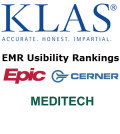Medical Devices Can Be Hacked FDA Warns
 Hackers gaining access to medical devices is a real threat. In the television series Homeland some of you may have seen how a terrorist hacker gained access to the Vice President’s pace maker.
Hackers gaining access to medical devices is a real threat. In the television series Homeland some of you may have seen how a terrorist hacker gained access to the Vice President’s pace maker.
As outrageous as that may see the threat is very real and not just with pace makers. Any device that communicates using the internet of wireless technology can be a potential target.
In a June 13 safety communication, the Food and Drug Administration warned medical device manufacturers; hospitals; medical device user facilities; healthcare IT and procurements staff; and biomedical engineers to put safeguards in place to reduce the risk of cyber attack.
The number of wearable and mobile medical devices is growing rapidly, which will compound the issue.
FDA said the cyber attacks could be initiated by the introduction of malware into the medical equipment or unauthorized access to configuration settings in medical devices and hospital networks.
“Many medical devices contain configurable embedded computer systems that can be vulnerable to cybersecurity
breaches,” FDA officials wrote. “In addition, as medical devices are increasingly interconnected, via the Internet, hospital networks, other medical device and smartphones, there is an increased risk of cybersecurity breaches, which could affect how a medical device operates.”
[See also: Washington focuses on cybersecurity.]
According to FDA, the government has become aware of cybersecurity vulnerabilities and incidents that could directly impact medical devices or hospital network operations, including:
- Network-connected/configured medical devices infected or disabled by malware;
- The presence of malware on hospital computers, smartphones and tablets, targeting mobile devices using wireless technology to access patient data, monitoring systems, and implanted patient devices;
- Uncontrolled distribution of passwords, disabled passwords, hard-coded passwords for software intended for privileged device access (e.g., to administrative, technical and maintenance personnel);
- Failure to provide timely security software updates and patches to medical devices and networks and to address related vulnerabilities in older medical device models (legacy devices);
- Security vulnerabilities in off-the-shelf software designed to prevent unauthorized device or network access, such as plain-text or no authentication, hard-coded passwords, documented service accounts in service manuals, and poor coding/SQL injection.
FDA is not aware of any patient injuries or deaths associated with these incidents nor do they have any indication that any specific devices or systems in clinical use have been purposely targeted at this time, officials said.
[See also: Lawyers react to FDA’s recent app guidance activity — or lack thereof.]
 FDA officials said they have been working closely with other federal agencies and manufacturers to identify, communicate and mitigate vulnerabilities and incidents as they are identified.
FDA officials said they have been working closely with other federal agencies and manufacturers to identify, communicate and mitigate vulnerabilities and incidents as they are identified.
The agency recommend that manufacturers review their cybersecurity practices and policies to assure that appropriate safeguards are in place to prevent unauthorized access or modification to their medical devices or compromise the security of the hospital network that may be connected to the device.










You must be logged in to post a comment Login